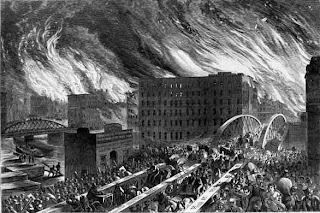Much of the focus of this election has been on Tony Abbott and Julia Gillard, and rightly so. The ALP, Julia Gillard and Wayne Swan in particular, have continuously mocked and ridiculed the Coalition’s economic credentials. In fact, Messr Wayne Swan has been quick and swift to describe almost all Coalition policies as “comical” or “farcical”. A fairly limited vocabulary it seems.

Wayne Swan has a Bachelor of Arts majoring in Public Administration. More specifically, a Bachelor of Arts with Second Class Honours from the University of Queensland. Julia Gillard has a Bachelor of Arts and a Bachelor of Laws. Outside of public office, these credentials would not get either employed at any bank. Yet the Australian public have been asked to believe that Ms Gillard and Mr Swan have the “economic credentials” to lead Australia into the future. In fact, just two Labor ministers hold degrees in either economics or commerce: Chris Bowen and Craig Emerson.
On the contrary, Tony Abbott has Bachelor of Economics and a Bachelor of Law and was a Rhode Scholar. Joe Hockey has a Bachelor of Law and a Bachelor of Arts and worked as a banking and finance lawyer. Andrew Robb has a degree in economics and agricultural science. If anything, on paper at least, the Coalition boasts a stronger economics prowess. Unsurprisingly, these are backed up with their stronger economic policies.
Let us consider a fundamental principle of allocative efficiency. We live in a capitalist and free market world. Competition drives out inefficiency and a free market is (or should be) allocatively efficient. That is, productivity is maximised as the capital is allocated to those who are able to deliver the best product for the lowest price. In simple terms, a market where companies can compete to provide services (for example broadband infrastructure) will deliver the “best bang for your buck”.
This fundamental principle is reflected in Coalition policy. Mr Abbott has revealed that major infrastructure projects such as broadband infrastructure would be partly funded by private sector investment or private enterprise. The private sector investment would be allocated to a company or syndicate that could deliver the same infrastructure asset for the lowest price. The fact that an Abbott Government would fund part of the project enables and gives Government a monitoring role over the project, while allowing private enterprise to utilise their competitive advantage in building of project specific infrastructure.
The alternative is for a government funded investment, such as the Building Education Revolution (School Halls program) and the Home Insulation Program (Pink Batts program), where fully funded government investment result in ripoffs of the Australian people because this form of investment simply isn’t allocatively efficient. In effect, tax payer money is being put on the table inviting every Tom, Dick and Harry, who may or may not be qualified builders or insulation installers, to take as much of this money as they can. The fact that the government put money on the table as an invitation for Australian tax payers to get ripped off.
Today, Mr Abbott unveiled a plan for the use of infrastructure bonds to fund infrastructure projects. Mr Swan, as usual, described this as comical. I would implore Mr Swan to consider the ingenuity of the Coalition’s policy before making such off-hand remarks. Infrastructure bonds would allow Government to finance projects at a fraction (being the coupon payments) of the price. Furthermore, this would entitle investors in such bonds to a tax rebate plus the added security of an almost risk-free investment. It also adds liquidity and size to the Australian Debt Market. How, possibly, could such a policy be comical?
So what we have is a second class liberal arts student in Wayne Swan purporting to govern US$1 trillion Australian economy who does not understand fundamental economics and does not understand the basic finance theory. Is this someone we can trust to lead Australia into the future? Mr Swan, the only thing that is farcical and comical is your lack of economic credentials.







 Track with co.mments
Track with co.mments
